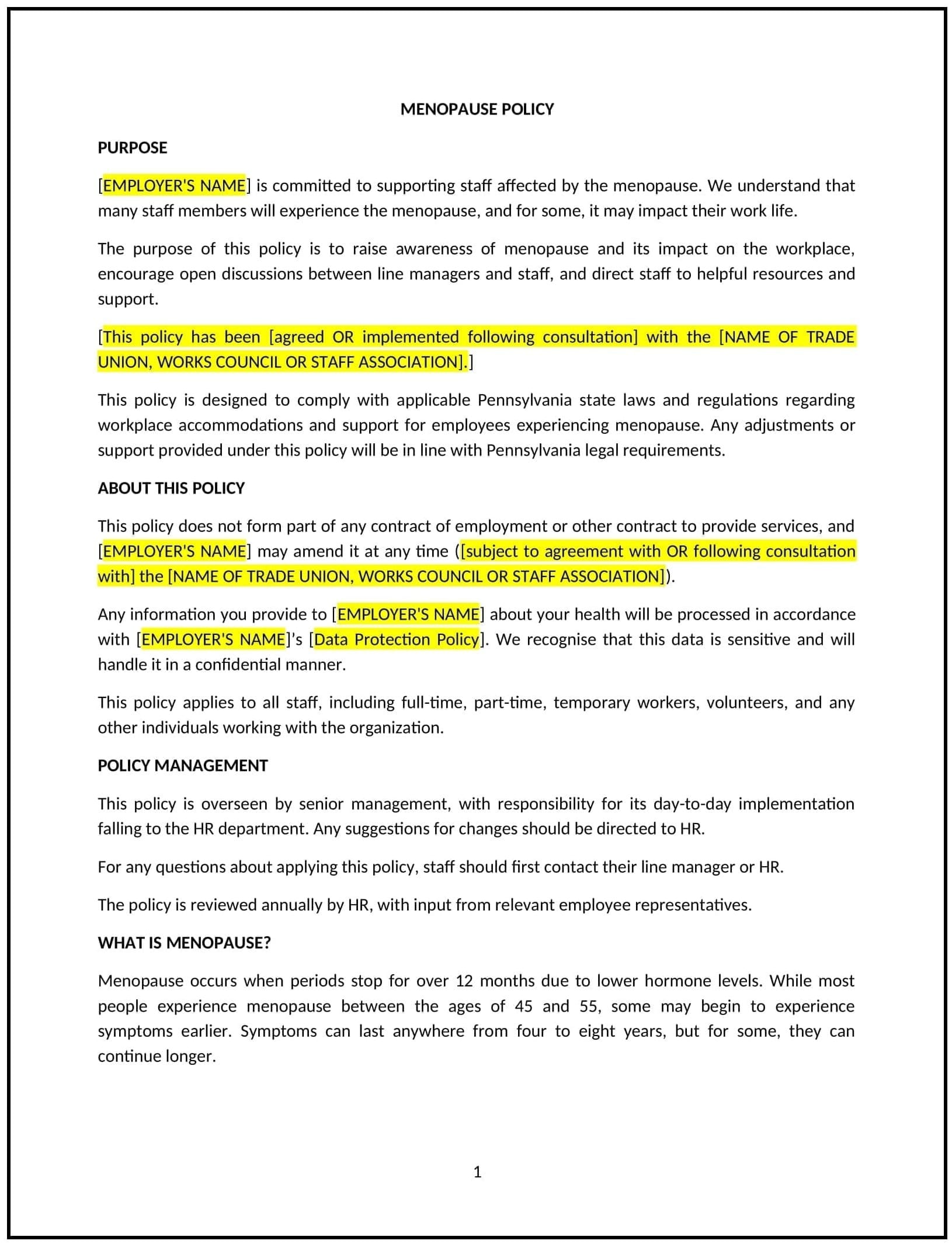Got contracts to review? While you're here for policies, let Cobrief make contract review effortless—start your free review now.

Customize this template for free
Menopause policy (Pennsylvania)
This menopause policy is designed to help businesses in Pennsylvania create a supportive workplace for employees experiencing menopause-related symptoms. By providing accommodations, fostering understanding, and addressing workplace challenges, this template promotes inclusivity, well-being, and employee retention while aligning with Pennsylvania labor laws.
By using this template, businesses can demonstrate commitment to employee health and create a positive workplace culture that values diversity and support.
How to use this menopause policy (Pennsylvania)
- Define menopause support: Clearly outline the organization’s commitment to supporting employees experiencing menopause, including awareness and accommodations.
- Include workplace adjustments: Specify reasonable adjustments that can be made to help employees manage symptoms, such as flexible schedules, temperature control, or access to private spaces.
- Provide training: Detail the training offered to managers and employees to foster awareness and reduce stigma related to menopause in the workplace.
- Address confidentiality: Emphasize the importance of maintaining privacy when employees disclose menopause-related needs or concerns.
- Reflect Pennsylvania-specific considerations: Tailor the policy to address any state-specific workplace needs or labor protections for employees experiencing health-related issues.
Benefits of using a menopause policy (Pennsylvania)
A well-structured menopause policy supports employee well-being and workplace inclusivity. Here's how it helps:
- Promotes inclusivity: Fosters a supportive environment for employees experiencing menopause, reducing stigma and promoting understanding.
- Enhances retention: Helps businesses retain experienced employees by addressing their needs and reducing workplace challenges.
- Encourages productivity: Offers adjustments that help employees manage symptoms effectively while maintaining their performance.
- Supports compliance: Aligns with Pennsylvania labor laws and anti-discrimination regulations, reducing legal risks.
- Reflects local needs: Addresses Pennsylvania-specific workplace considerations, such as diverse industries and employee demographics.
Tips for using a menopause policy (Pennsylvania)
- Communicate the policy: Share the policy with employees to raise awareness and normalize conversations about menopause in the workplace.
- Provide manager training: Equip supervisors with the tools to support employees experiencing menopause and to offer appropriate accommodations.
- Encourage open dialogue: Foster a workplace culture where employees feel comfortable discussing health-related needs without fear of stigma or judgment.
- Monitor workplace adjustments: Regularly review accommodations to ensure they meet the needs of employees and align with company resources.
- Review periodically: Update the policy to reflect changes in Pennsylvania laws, workplace needs, or best practices for supporting employee health.